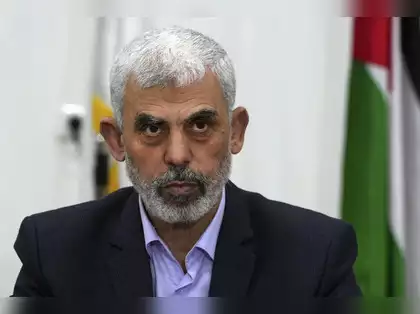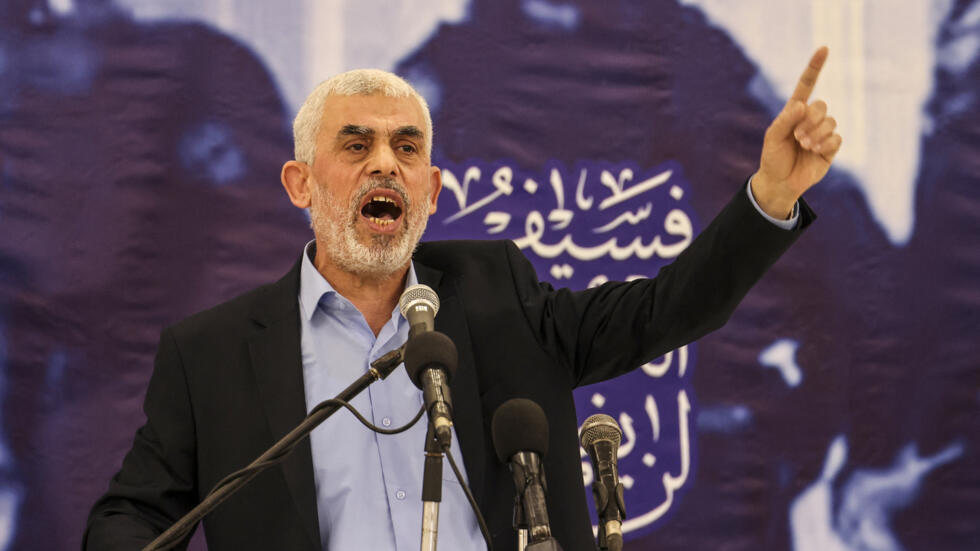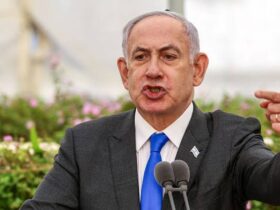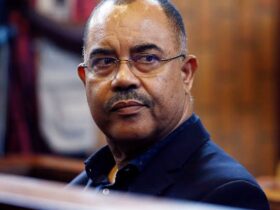Yahya Sinwar, the Hamas leader who orchestrated the October 7 attack on Israel that sparked the ongoing war in Gaza, has reportedly been killed in an unexpected encounter with Israeli ground forces.
The Israel Defense Forces (IDF) stated they were verifying whether Sinwar was among three militants killed during an operation, but could not yet confirm their identities.
Several security officials, speaking anonymously to Israeli media, indicated that the bodies had been transferred to Israel for DNA testing, and the test results confirmed that Yahya Sinwar was dead.

Israel’s Kan Radio reported that the Hamas leader was killed “by chance” rather than through targeted intelligence efforts. The station also noted that the bodies were found with large sums of cash and fake identification documents.
Graphic photos and video aired on Israeli media showed what appeared to be the body of Yahya Sinwar, wearing military fatigues, with a severe head wound, lying in the rubble of a destroyed building. It was unclear when or where the footage was taken or what caused the destruction.
Hamas did not immediately comment.
Israel’s Channel 12 reported that an infantry battalion, supported by a tank unit, spotted a group of men running into a building. The forces fired tank shells, and the bodies were subsequently buried under the debris.
If confirmed, Sinwar’s death would be a significant victory for the Israeli military and Prime Minister Benjamin Netanyahu, following a series of high-profile assassinations of enemy leaders in recent months.
Sinwar was believed to have surrounded himself with Israeli hostages to reduce the chances of being targeted. However, a statement from the prime minister’s office said no hostages were thought to be present.
READ ALSO: JUST IN: Reversing Tinubu’s Reforms Will Wreck Nigeria’s Economy — World Bank Claims
Israel invested significant resources over the past year in its search for Yahya Sinwar, deploying a dedicated task force of intelligence officers, special operations units, military engineers, and surveillance experts under the Israeli Security Agency. However, it appears that Sinwar was ultimately killed by regular troops during a routine patrol.
Sinwar, who considered himself well-versed in Israel’s military and political systems, spoke fluent Hebrew, a skill acquired during his over 20 years in prison. He was the architect of Hamas’s recent strategy to mislead Israel into believing the group had been deterred, before launching the surprise October 7 attack that left 1,200 people dead and 250 more taken hostage.
Western and Israeli intelligence assessments suggested that Sinwar had long avoided electronic communications, instead using a network of couriers to communicate from Hamas’s extensive tunnels under Gaza.
These reports also indicated that Sinwar had adopted a fatalistic view after a year of intense fighting, in which 42,000 people were killed. He believed he would die but hoped to entangle Israel in a regional conflict with Iran and its allies, including Hezbollah in Lebanon.
Born in the Khan Younis refugee camp in southern Gaza, Sinwar grew up in poverty before studying at the Islamic University of Gaza, where he earned a degree in Arabic Studies. His childhood friends included Mohammed Deif, Hamas’s military leader, and Mohammed Dahlan, a prominent Fatah figure now in exile in the UAE.
Sinwar joined Hamas soon after its founding, spending much of his youth in and out of Israeli prisons. He became notorious as an enforcer responsible for identifying and killing Palestinians suspected of collaborating with Israel.
In 1989, he was sentenced to four life terms for the abduction and murder of two Israeli soldiers and four Palestinians. After serving 22 years, he was released in a 2011 prisoner exchange for Israeli soldier Gilad Shalit. Upon his return to Gaza, Sinwar married and had three children.
In 2017, Sinwar was elected as Hamas’s chief in Gaza, surviving multiple Israeli assassination attempts. Unlike some Hamas leaders, he consistently advocated for armed struggle as the only path to Palestinian statehood.
After Israel’s assassination of Hamas’s political chief Ismail Haniyeh in July, Sinwar was appointed the overall leader of Hamas, signaling the group’s increasingly hardline stance on ceasefire talks.
Israel said it came close to capturing or killing Sinwar in January, when it found DNA evidence of his presence in a bunker beneath Khan Younis, including clothing and more than 1m shekels (more than £200,000) in wads of banknotes. He was estimated to have left a few days before Israeli forces raided the bunker.
In a statement, Israel’s Hostage Families Forum said: “The Forum commends the security forces for eliminating Sinwar, who masterminded the greatest massacre our country has ever faced, responsible for the murder of thousands and the abduction of hundreds.
“However, we express deep concern for the fate of the 101 men, women, elderly and children still held captive by Hamas. We call on the Israeli government, world leaders, and mediating countries to leverage the military achievement into a diplomatic one.”
Follow Parallel Facts on WhatsApp Channel: https://whatsapp.com/channel/0029VaCQSAoHgZWiDjR3Kn2E









Leave a Reply